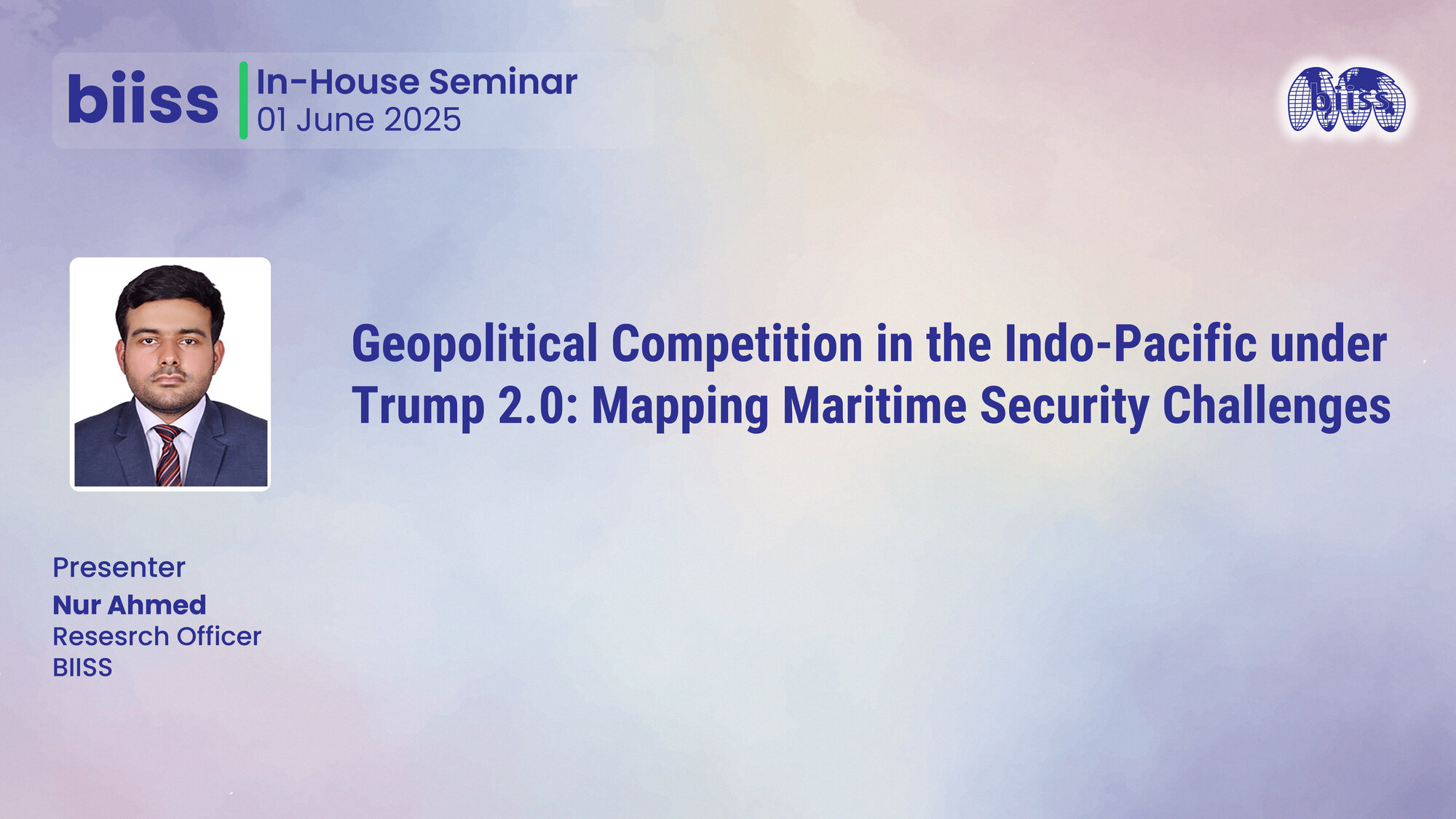
This in-house seminar maps the maritime security challenges that intensify when strategic competition accelerates in the Indo-Pacific. The program reviews defense postures, operational concepts, and logistics nodes that shape naval presence and power projection, along with implications for sea lane security and amphibious access. Case discussions consider coercive statecraft at sea, grey zone tactics by maritime militias, and the growth of unmanned and autonomous systems that complicate rules of the road. The session assesses how technology denial, export controls, and supply chain security affect shipbuilding, sensors, and repair ecosystems across the region. Presenters also analyze the role of coast guards in safety and law enforcement, crisis communications to avoid escalation, and the value of standardized incident reporting. The seminar explores confidence building steps for search and rescue, oil spill response, and disaster relief that can remain insulated from high politics. A policy segment outlines practical options for South Asian stakeholders, including maritime domain awareness architectures, information fusion, coordinated patrols, and capacity development for small craft, maintenance, and training. The discussion concludes with a forward look at governance mechanisms that keep trade flowing, protect the environment, and build resilience for ports and coastal communities, while maintaining strategic balance in a dynamic theater.
